#I JUST WANNA TALK ABOUT THIS POST
Explore tagged Tumblr posts
Text
Shattering My Expectations (again, word limit)
That Lightbulb just can’t be stopped, can she? She never fails to… well, fail. I counted today as the sixth time Lightbulb has shattered, the sixth part in an incessant pattern that you just can’t help but marvel at! Because, well, what else can you do? Look down on her for being careless? Heh. Just sit back and enjoy the proceedings! Now I know what you’re thinking. Fan, this is great and all, but what of the other five times Lightbulb has broken into pieces? Surely these groundbreaking moments cannot be ignored! Oh, you are quite right about that! For here I shall list off every occasion so far in which our irreplaceably light-headed light bulb friend has cracked us up! And no… I’m not referring to her sense of humor. At least, I think she’s purposely making all of those jokes. She’s trying to be funny, clearl- eh, let’s just move on. 1. Penciled In – A Lightbulb shatter was never expected or planned on any schedule. Why? It is because it had never occurred before, that is, until this fateful day. Now, as a writer myself, I know the pains of writer’s block. But I’m sure it doesn’t hurt as much as a pencil straight to the face! That’s gonna leave a mark that you can’t erase… Yet how would this landmark event be followed up? In a way only Lightbulb could! 2. Not a One-Shot Wonder After All – That last one may have been the first time we saw Lightbulb break, but unlike many musical sensations that have graced our radio stations, she came back with a vengeance. Several vengeances, actually! As for this one, it’s a classic comedic fall over a rock, and it’s during a challenge. Lightbulb’s shattering became one pattern, and her… memorable performance during Season 1 team challenges became another. She always knew just how to mishandle a group effort- I mean- well, um. She’s just perfect, okay? She has her own standard that she’s measured by. She’s Lightbulb. 3. The Episode 5.5 Scene-Stealer – Oh, Lightbulb certainly had a small amount of screentime in this already bite-sized minisode, but she makes the most of it by sticking her landing squarely between a captive Paper and Baseball! Forget Baseball’s book about where life itself comes from! I want to know where irreplaceable diving champions like Lightbulb come from! That way… I can stay away. This is reckless behavior, honestly. Who would bring up their kid like that? 4. Into Thin Air – I just don’t know how she does it. Seriously, upon her rejoining, Lightbulb miraculously fades into existence, betraying any semblance of gravity until she promptly decides to hit the ground. I’ve watched this countless times, and I still wouldn’t be able to explain it. It honestly makes no sense. Then again, neither does Lightbulb. But hey, at least she’s not like certain other individuals that happen to be on my team. I’m willing to brush off that issue, though! Brush. Off. Brush… next time, okay? You’ll understand soon enough. 5. Dropped out of the Game – Now don’t let this heading fool you. Lightbulb would never drop out of II. She’s too stubbornly unaware to ever consider that! You just got to love her, for even when she’s eliminated from the show, she still goes out with a bang, or perhaps more like a “keilkeicccc”! It’s difficult to describe. 6. Holiday Trip – One of my Internet friends said it best – Christmas ain’t Christmas until someone gets severely injured. It’s a very special time of the year, and you can just count on there being some sort of complication. It’s one thing when you receive a present you don’t want, but it’s another when you stumble over a rock and hurt yourself as you land upon a blanket of fresh, white snow. It’s like becoming incapacitated on a puffy cloud, it stirs feelings in you that… I don’t understand and quite frankly make me feel a little too aware of myself and immensely uncomfortable because of it. Let’s get off this subject! 7. Support Me – Just as Lightbulb was about to give Paintbrush some help- Wait just a moment! This is number 7! I stated on INANIMATE INSANITY, a show I dearly observe and respect, that this was the SIXTH time Lightbulb had
#LIGHTBUBL#LIGHTUBL#LIGHTBULB#THIS!!!!!#I JUST WANNA TALK ABOUT THIS POST#inanimate insanity#fan ii#ii fan
26 notes
·
View notes
Text
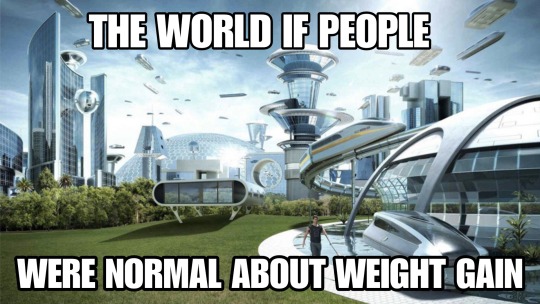
#i feel like tge fact im apprehensive about posting this is kinda proving my point#the way everyone talks about both weight gain and weight loss is just horrendous#like idek if i could fit all i wanna say in here especially while im at work but#i so badly wish people could be normal about weight gain and talking about it#its like if youre not in some constant state of wanting to lose weight people want to kill you#god forbid you want to put on weight to feel more comfortable in your body outside of muscles and a butt#fatphobia is a given thats a whole other few paragraphs#im grateful i have mutuals and friends who are normal but ill have or hear these convos and go#ok i feel sick. why do i feel this way why do you feel that way.#anyways i think fatphobia is one of the worst things to ever happen
28K notes
·
View notes
Note
WAIT ARE YOU ARE YOU CUPTOAST??????????????

euuummmmmm.... mauybe....
#crumbessage#i always think its funny when people realize#i dont post my yt/twt stuff here though... i always seem to forget#i like this blog being a fandom blog disconnected from me as a youtuber/streamer#i just wanna talk about ethan winters#or transformers#and post fanart#i just wanna have fun...
3K notes
·
View notes
Text

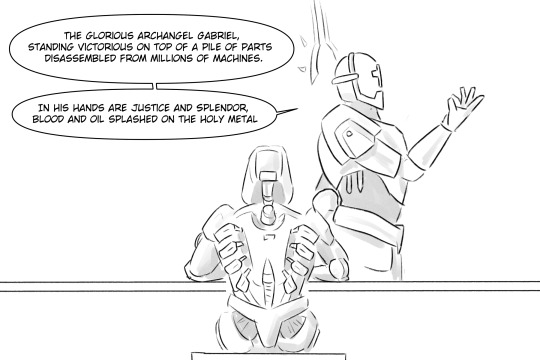




bullshitting the prompt took way longer than i thought
#no it's not that idea i was talking about in the last post#why am i drawing ultrakill again i don't even have the game in my computer anymore#i guess i just wanna make wholesome content out of them#in a game that is all about not wholesome stuff#hmm#ultrakill#ultrakill v1#v1 ultrakill#ultrakill gabriel#gabriel ultrakill#gabv1el#my art
2K notes
·
View notes
Text
Hey, that’s my mutual I wanna fuck. Go get your own. 😤😤😤😤
#talking peach#tbh way more than just fuck#but ya know#for the purpose of this post it fits#also wanna love and kiss and hug and make him feel special and good about himself#anyway… GO GET YOUR OWN I DONT LIKE TO SHARE#.
11K notes
·
View notes
Text
Why do I keep seeing transmascs and trans men insisting or implying that all trans men are "female socialized," or "understand the female experience," or "navigated the world as a woman." Because yeah, sure, that can be true for some people. especially if you weren't gnc at all as a kid and didn't crack your egg until well into adulthood, it makes sense.
But they don't stop at saying they had that experience. It always comes with an addendum that trans men, as a group, all can relate to this experience. I don't know about the entirety of my demographic, but I never got even a little bit of what some of them talk about. I didn't even believe that women were scared of going out at night until I kept consistently seeing them say it, online or wherever, for years. I never realized catcalling was a thing until I saw some women complaining about it on reddit.
But they posit it as some sort of, you're safer than cis men, right? You know what it's like? Which, on top of being patently, demonstrably false in the case of myself and many other trans men, holds some unpleasant and often outright hostile implications about trans women. And they always deny it, but if you can't even conceptualize someone like me who grew up gnc, and never got the bulk (or any?) of whatever we consider to be 'female socialization,' what does that say about what you think trans girls went through, growing up? I don't want to speak for them, as I've never experienced that firsthand, but I can guarantee that (if you're even a little bit obviously trans) people don't treat you like a cis kid of the opposite gender. By and large, they don't get treated like cis boys.
It just makes me mad that we're taking this inaccurate framework that (ever so conveniently) puts trans people into the box of our assumed birth gender, and trying to fancy it up and use it with a faux-progressive veneer; never mind the way that transphobes use it to bar trans women from being athletes, or using the bathroom, or having access to any gendered resources they need. It would be bad enough to try and dust it off and use it even if it were largely accurate, due to the aforementioned connections to outright transphobia, but it literally is patently false. Not in all cases, obviously, but why are we trying to revamp this untrue, inaccurate generalization and pretend that we can make it 'trans-inclusive?'
#o.#trans#transphobia#transmisogyny#I may or may not be talking about a specific post I saw that made me irritated but I didnt wanna get in an argument with internet strangers#sorry guys I'm still heated over freaking collin allred capitulating to ted cruz and throwing trans girls under the bus bc he didnt have the#guts to stick to his morals#and called them ''this idiotic business with boys in girls sports'' or some crap#as if trans girls don't deserve to play the sports they love. like I imagine if they blocked trans men from being physicists or something#and I just wasn't able to pursue the career I want? that would destroy me#and I still had to vote for him because the other options were ted cruz and some freaking libertarian.#sorry thats all tangential but can we not use the same rhetoric that all these politicians do as an excuse to kick trans women out of public#life PLEASE 🙏#...also I really hate the Popular Transmasc Ideology that says that we all experience life as basically the same as a cis woman & never have#to navigate having male privilege & being an ally to women#and all have some sort of Innate Connection to femaleness or womanhood or whatever bc 'obviously' we all grew up just like girls do#ugh#this one's going out there sans editing so dont yell at me if I worded smth weird please 🙏
883 notes
·
View notes
Text
Ideology of Exceptionalism and Gravity Falls; meta and character analysis

I had a whole ago read a post by @icanlife that had a quote by Alex Hirsch on Ford's greatest flaw, and wanted to explore what the flaw is, which is the ideology of exceptionalism; in the exploration, I’ll touch on what it is and how it is used in abusive relationships and cults, as well as how it drives multiple Gravity Falls characters and consequently how it impacts relationships between these characters, and how the show ultimately refutes exceptionalism.
Quick note here; I am not in any way, shape or form a psychologist nor have any formal training in psychology; this is written from my own experiences with this ideology and my own forays into psychology and trauma-informed learning. It is also written with a loose understanding that is likely not broad enough to cover all references to cults, extremist groups and abusive relationships.
The Ideology of Exceptionalism
First of all, we have to get through a drier bit, which is… what is the ideology of exceptionalism and how does it arise? Might be fairly obvious, but it is the belief that you are, or belong to, a group of exceptional people, thus more important and worth more than anyone else; ie, those who don't qualify as 'exceptional'. It is often a subconsciously learned ideology. Now, what qualifies one as exceptional can be extremely varied; generally it revolves around something that provides some form of privilege. Thus, it might be, as the main exceptionalist idea in Gravity Falls, 'intelligence', or power, or it can be such things as attractiveness, quantity of money one has, species, nationality, or skin colour and ancestral heritage. The ideology of exceptionalism, being by nature hierarchical, devalues, and at its worst, openly and violently dehumanizes those who do not qualify as exceptional.
For why exceptionalism occurs is an extremely broad topic, but I've personally found that, for exceptionalism revolving around intelligence, it's a result of a poor sense of self-worth, and having one's self-worth tied to what makes one exceptional. Poor self-worth itself (again, broadly) is a result of childhood trauma from a lack of positive affirmation and unfulfillment of the emotional needs of the child. Meanwhile, self-worth becoming tied to the quality of exceptionalism generally is a result of when positive affirmation was pretty much solely provided around their 'exceptionalism', especially when provided derogatory commentary, or a blatant example of how they would be treated if they aren't 'exceptional'. As a result of the general lack of affirmation, self-worth then becomes often solely reliant on the qualities of exceptionalism, as that is the only way for the child (and later, adult) to get affirmation of their worth, as well as out of fear of being ‘not worth anything’ like the examples of ‘non-exceptional’ people they have been given.
This is especially likely to occur when the child is a social outcast; the adoption of the hierarchical ideology of exceptionalism, and the devaluation/dehumanization of others often occurs subconsciously as an avoidance/minimization tactic from pain. This is to say, the child, and later the adult (if healthy self-worth is not established) goes 'it doesn't matter what the non-exceptional people say or if they accept me since I matter more than them because of my exceptionality'. It can even be taken further, that being shunned is part of one's exceptionalism, and becomes part of the qualifier of being exceptional. For instance, 'they just can't understand because they aren't exceptional and that's just a part of being exceptional'. This idea also neatly tailors into the part of the concept of being better then others means you are separate from others; this can be taken that someone who is special, needs to be alone to be truly special.
Obviously, exceptionalism is not a healthy coping mechanism for poor self-worth, as often such people constantly feel the need to prove and show off their exceptionalism to gain that affirmation and avoid rejection, which is stressful. As well, it often negatively impacts their relationships with other people as a result of the arrogance of believing that they are better than most others, or even deliberate sabotage due to their arrogance. This occurs as they flatten the complexity of human experience to black-and-white hierarchical categories of exceptional/not-exceptional through constant judgement of those they meet, and often refuse to engage with people who don't belong to their 'exceptionality', or even people they simply don't like, even if they technically qualify. Generally, those that they do like or have close relationships with, often due to being similar, are automatically labelled as 'exceptional'. Those judged as ‘exceptional’ also become privy to the open judgements of ‘non-exceptional’ others, out of a subconscious belief by the exceptionalist that the other believes similarly; something that may strain their relationship if the other doesn’t ascribe to exceptionalism. This all culminates in the exceptionalist being blind or even adverse to the diversity of experiences, which makes it difficult to create relationships and community outside of echo chambers of their own beliefs (if they can even find this), and subsequently, these people are often isolated and have very few to no close relationships with people.
However, all humans require connections with other people, relationships where one can rely on others emotionally and physically if needed and feel accepted; they also require to feel like they are worth something, that their life has meaning. Lacking meaningful connections and having a crippled sense of self-worth, a deep yearning hole is left in these people. Exceptionalism, especially as it is a narrative constantly pushed by Western society as it validates hierarchies, is then employed as a (often subconscious) trauma response to assuage this yearning hole, with arrogance and denial. And depending on the circumstances, it can be a very strong and definitive trauma response for people.
This isolation and lack of self-worth is catnip to abusive relationships, including cults and extremist groups. These types of relationships often heavily rely on isolating their victims or pulling them into echo chambers of solely the abuser’s rhetoric, to redefine what is healthy through gaslighting; as the exceptionalists are already isolated, this makes them extremely susceptible. They also often provide these people affirmation, and in these cases especially about their exceptionalism, thus confirming their self-worth, their 'specialness', while also providing them the connection they have been lacking, either through the cult community or through the abuser’s own presence. These emotional needs, which haven’t been met in a long time, if ever, begin to be fulfilled; something that abusive relationships and cults hinge on, rather than any form of logic.
Ideology of Exceptionalism and Gravity Falls
The main characters within Gravity Falls which are heavily ascribed to exceptionalism would be both Ford and Bill; this characterization deeply impacts the story and their relationships with others (technically the Northwest are another case regarding wealth, but less directly impact the storyline and thus tangential; Gideon also is an example, but as a mirror of Bill). With each of these characters I’ll go into detail within their sections on the way they began to ascribe to exceptionalism, and how it plays out later in their relationships; I will first begin with Ford, then move to Bill. Then, to cap it off, I’ll go into the characterization of Stan and the way Gravity Falls refutes exceptionalism.
Ford and Exceptionalism
Firstly, the quote from Alex Hirsch that kicked this whole baby off, as mentioned previously;
“Ford sees Dipper as someone who’s special like himself. That’s Ford’s great flaw, his arrogance is he believes that there’s special people, and everyone else. That human attachments are actually weaknesses. And the song and dance that he’s giving Dipper right now, is the song and dance that he gave McGucket, back when they were younger… ‘You and me are different, we’re better than everyone else. We have a path that no one else can understand, and only us can do this.’ It’s a very seductive idea for Dipper… Dipper is a smart kid, but Ford’s projecting. Ford loves Dipper because he sees someone who’ll tell him ‘yes’ to everything. Who’ll never challenge him, who’ll do a really insane dangerous mission.”
Very blatantly Alex Hirsch calls Ford out on his arrogance in the belief that he is special, in his belief in the 'lone hero' complex, in his belief in exceptionalism. And really, it should be no surprise that Ford does so, considering the way he's depicted as a social outcast as a child (other than Stan), and the way his parents have been clearly shown to be not particularly emotionally supportive (“I’m not impressed”); they don't provide positive affirmation except for his intelligence (mostly due to the possibility of money making through it…), while also actively comparing him to Stan who is derogatorily ‘not-exceptional’, and ‘worth less’. This all sets Ford’s self-worth up to be fragile, and other than Stan who wholeheartedly accepts him, he is isolated and invalidated; plus, the only other validation he receives is around his intelligence. All very classically fitting the profile for exceptionalism.

Image id: Stand and Ford when they were children, both clearly enjoying each other's company.
Ford’s belief in his exceptionalism catalyzes after the shattering of his and Stan’s relationship. Previously the twins are shown to do everything together, having a very close caring relationship; something unlikely if Ford thought he was better than Stan. Also, when Ford is talked to about his opportunities, Ford looks uncomfortable at the way they talk about Stan as inferior, compared to how he himself is being praised; but in the offer he’s simultaneously finally being validated, he’s being told he’s someone worth something, and he’s going to be someone worth something after this. And then the science fair incident occurs, and Ford loses that validation from his parents, from the judges and a future of more validation; after being promised validation and acceptance, it slips through his fingers. And in his anger of being denied that, it becomes easy to begin to slip subconsciously into the rhetoric the others have been feeding him; that he’s exceptional, that Stan isn’t, and he deserved to be recognized for his worth. So he breaks the relationship with the only person who accepted and validated him for who he is. With that loss of previous support, Ford becomes then deeply obsessed with proving his exceptionalism to the world to assuage that fragile self-worth, to become accepted, or even better, revered, confirming that he is someone of worth, someone special, like he was promised.
Ford’s obsession also doubly functions as a way to alleviate his guilt over shattering their relationship; if he’s exceptional as he believes, then he’s within the right to respond the way he did, as he’s worth more than Stan, he's better off alone, and he has a right to be angry over being denied that validation. As well, in much the same way as it is used as a way to alleviate his guilt over the end of their relationship, it is also likely used in a way to minimize the pain of being ostracized (although not directly depicted); afterall, Ford’s keenly aware and insecure about his social ineptitude and his six fingers as things that make him different from other people, case in point with his experience visiting Lazy Susans Diner. Thus it wouldn’t be unsurprising if he uses the idea of being worth more than those who ostracize him to imply it ‘doesn’t matter’ what they think. His ostracization by nature keeps him from generally forming close relationships, with the exception of Fiddleford (who much like him, is socially outcast, and intelligent) during his university days. As a result, he's isolated and acutely lonely, having lost Stan.

Image id: One of the missing Journal 3 pages in TBOB, detailing Ford's botched social interaction in Lazy Susans Diner. In the background is the print of his six-fingered hand.
In his obsession over being acknowledged, Ford, like many others who believe in exceptionalism, identifies strongly with the causes of his ostracization (his intelligence, his six-fingeredness) as part of, or wholly, makes him exceptional. It is obvious through his choice of study; with the grant he has been gifted, he chooses to revolve his work around the weird, the outcast, something that you see Ford gravitate towards being an outcast and deemed 'weird' himself (which in Journal 3 he openly talks about). Something that can be, much like him, framed as 'exceptional'. His work is even recorded in a journal that Ford deliberately chooses to put his six-fingered hand on the cover of. Intertwined with the way it becomes adopted into the idea of exceptionalism, is the keen loneliness from his ostracization and a deep desire to be accepted and a wish to find a community of other weird people.

Image id: Two pages from journal 3, labelled 'Myself', in which Ford is open about being weird, and a social outcast, while also noting his ambitions and that 'Gravity Falls, [is] the place that I fit in.'
Ford and Bill
All of this culminates in Ford becoming an incredibly easy target to manipulate by Bill. He’s desperate to be acknowledged (and thus accepted) by an authority figure so that his belief in exceptionalism is justified and his self-worth confirmed. And he knows he’s intelligent, that he's exceptional because people have told him so, but he just needs to prove it with something that shakes the world. And the grant is finally his second chance after the fair, but he's stuck, and the research is going nowhere, and he's in a town where he doesn't really know anyone and he’s so terribly lonely. And sure, he clings to his exceptionalism but if he can't even prove it then is he really exceptional? Is he even worth anything like he thought he was? And what about what he's left behind, rejected, because of his exceptionalism?
And THEN he finds an incantation and he ignores the warnings because maybe, just maybe, this will be his break to get that acceptance/validation he has been chasing his whole life?
And then it's better than that.
A god, essentially, shows himself to him, an ultimate figure of authority. And he tells him that yes, he is special, he’s worth more than other people, and Bill’s only showing himself to Ford because he is so much more intelligent than anyone else. Ford is suddenly getting his exceptionalism confirmed by a god of ancient knowledge, an immensely intelligent interdimensional being, and he’s also showering him with affirmations, specifically affirmations around what Ford's fragile self-worth is based on. And even better, he's delighted by Ford's six-fingeredness; he's not put off at all, it even becomes his main nickname for Ford, just like it used to be for Stan all those years ago. On top of it all, Ford's own social ineptitude doesn't phase Bill, another thing Ford is self-conscious about; Bill's own social ineptitude as he's not human probably makes Ford feel comfortable, knowing that's not expected from him.
Through Bill, not only does Ford find someone who validates his self-worth through intelligence and even confirms to him that his weirdness is part and parcel of making him special, he also finds someone who he regularly (generally) is in contact with, who enjoys talking to him and even banters with him familiarly. Hell, Bill even deliberately goes out of his way (literally possessing a whole wack ton of rats, then dream karaoke) to celebrate his birthday with him; how long do you think Ford has simply skipped his birthday since he had no one to really celebrate it with? The loneliness, beneath his arrogance and belief in exceptionalism, is being fulfilled; for the first time since Ford was a teenager, he's fully accepted by someone, social awkwardness, six fingers, exceptionalism and all.

Image id: One of the lost pages from Journal 3 in TBOB, the 'one thing led to another' page, with Bill and Ford singing karaoke and drinking together, both clearly enjoying themselves; Bill has an arm slung around Ford's shoulders.
So it's really no surprise at all that Ford fell for this, hook line and sinker. Hell, if I was in Ford's shoes I would fall for it just as hard. And I've seen a few posts floating around talking about how Bill is bad at manipulating, and no, he's not. He was able to pinpoint exactly what Ford wanted and needed, and provided that, was charismatic enough to provide that. Again, manipulation isn't about logic. It really isn't; it's about the emotional core in people, what people lack and what you can give them to slowly reel them in to sing your dance and song. And people will ignore vast swaths of red flags when you're finally being accepted, when you're finally getting your emotional needs met at least in some way or form. It's better than not having them met at all, such as previously. So Ford worshipping Bill is really not a surprise, especially as Bill deliberately stoked it.
All of this is part of why you see Alex Hirsch call Ford's belief in his exceptionalism his greatest flaw; because it allowed him to be very easily manipulated by Bill, and by its nature kept Ford isolated from others, evident by his arrogance in assuming he knows best and refusing to see other people who aren't as 'intelligent/weird' as him as worth getting to know, listen too and even reach out to ask help from, it's him believing he has to be the lone hero as someone whose 'special'. It's something that blinds him to the danger of his work around the weirdness of gravity falls because he’s desperate to seek a place where he and his weirdness belong, and it's something that plays out in each and every relationship he has because it's something he clings to so deeply. It's what cost him his relationship with Stan, who previously accepted him completely, and, as he's disinclined to form new relationships and as Bill actively strokes his paranoia (Trust No One…), ultimately further increases the hold Bill has over him. It's only Fiddleford’s presence as he works with Ford that allows him some form of outside reference and reprieve from solely Bill’s influence, something that Bill resents deeply and is clearly jealous and angry about, even if Fiddleford is helping create the portal. And it's ultimately Fiddleford, once he was aware enough of what was happening, calls Ford out on it, seriously jeopardizing Bill's influence over Ford; but Ford is too invested in the portal, in chasing his own ambition and caught up in Bill’s manipulation to take him seriously, until the incident with the trial, and Ford beginning to hear other voices then Bill.
Ford’s Exceptionalism and Wider Relationships
Now back to how it plays out in all Ford's relationships; we've already gone over it with Bill's influence, because it made him extremely easy to manipulate, and with his disregard of Stan in favor of validation of his exceptionalism. But Ford, as pointed out by Alex Hirsch, also exerts the ideology's seductive rhetoric to both Fiddleford and Dipper (who look up to Ford) in a similar way that Bill does with him (although there is a difference of it being used intentionally and maliciously, compared to subconsciously and earnestly, even if it is problematic). Ford, with his black-and-white view of exceptionalism, sees both Fiddleford and Dipper as people who are like him; 'exceptional', and so he treats them as such, and uses this rhetoric to coerce them into helping him.
For Fiddleford, the lure is how he can change the world, how he can be finally acknowledged if he helps Ford with the portal. And it works well; he willingly chooses to leave his own work and his wife and young son, to work with Ford. Much like Ford, Fiddleford himself is also a social outcast and regularly presumed less smart than he is, and he’s got a chip on his shoulder to prove himself, to gain acknowledgement and recognition from the world at large. Although Fiddleford has a family which presumes he’s not entirely lonely like Ford is, he also clearly has deep feelings for Ford, some which are hinted to be more than just ‘friendly’ feelings; it is likely the combination of the lure of validation and spending time with Ford, a kindred spirit that accepts him and an old friend/crush, that causes him to agree (afterall, it was Ford who made Fiddleford feel accepted and choose to stay at Backupsmore). And Fiddleford’s not even considered a partner, but rather an assistant to Ford due to Ford's arrogance, and he still drops everything to go! It’s more about their relationship and connection rather than validation, but that doesn’t stop Ford from espousing exceptionalism. And this is a distinguishing difference, because although Fiddleford would like recognition, he’s not there solely because of it; he’s not a believer in exceptionalism nor arrogant about his skills, and so, unlike Ford who is blinded by his obsession, he’s much more aware of the dangers of the weirdness of Gravity Falls. Thus, he's actively calculating the risks involved, and when he realizes there could be potentially devastating consequences of the portal, he attempts to talk Ford out of it; this fails due to Ford’s own denial and obsession over the portal. In the end, it all goes terribly sideways, and Fiddleford ends up losing everything he had; his wife, his son, his friend, his memories and himself to the trauma he had experienced at the invitation of his friend with the lure of validation and company, due to the memory gun he had created himself.
As for Dipper, much like Ford, he also has issues with self-worth (many of the episodes deal with Dipper finding self-worth; ie, the manotaur episode), has a physical oddity (his birthmark) and by far the trait he relies on most for worth is his intelligence (for example, in one episode he rubs it into Mabel's face over and over again in beating her in games). He's also extremely desperate to be recognized by authority figures as someone intelligent, case in point when he summons the dead after being made fun of by the government agents to try and show them that the information he's gathered is important after Stan dismisses his knowledge. This desperation to be seen as someone of worth from Dipper, much like Ford, extends to the need to be a hero, something he even says at the end of the zombie episode; yet, due to Mabel, unlike Ford he's not a lone hero, and Mabel also half the time acts as the hero.

Image id: Zombies crawling out of a crack after Dipper summons them; Dipper and the two agents look on in horror.
It all culminates in Dipper hero-worshipping Ford when he returns; really, no different than Ford worshipping Bill. And Ford clearly finds it extremely flattering; Dipper's attention and amazement of him feeds his exceptionalism. Exactly how Ford responded to Bill, Dipper is willing to do anything for Ford, excited too, in an attempt to impress Ford and be validated and accepted. And for Ford, that's an extremely heady feeling, especially as someone who has been constantly alone the last 30 years, especially when he had one previously confirm his exceptionalism all those years ago and stopped, and now someone is once again affirming that idea. And Ford doesn't have to be alone again, because he's found a kindred spirit in Dipper as his assistant, someone ‘just’ like him, someone who is exceptional. Because he sees himself in Dipper, he begins to espouse exceptionalism unconsciously, by praising Dipper's own intellect and adventurous spirit, assuaging his feeling of self-worth, while also telling him he's more important or better than others because of it.
And it's seductive to Dipper, because he wants to hear those affirmations of his self-worth, especially as he hero-worships him, but Dipper isn't sold on it, because it means leaving Mabel behind, it means believing that he's worth more than Mabel (and also, Stan, and all his friends he’s made in Gravity Falls). It's ultimately because of his relationship with Mabel that he rejects the ideology; he's not isolated the way Ford was with Bill, and he's not willing to break that relationship for that acknowledgement, because his relationships matter more to him.
Bill and Exceptionalism
Now of course, that's only on the Pines; what about Bill?
While it's obvious that Bill uses exceptionalism as a main manipulative tactic, it's not just an ideology he sprouts emptily; it's also an ideology he believes in, just like Ford, although it's less based on intellectual exceptionalism, and more on power and 'weirdness'.
This most distinctly can be seen in Bill's denial about what happened to his home dimension; Bill's belief in his exceptionalism occurs as a pain avoidance tactic from killing his whole dimension. Bill was clearly a social outcast within his dimension due to being able to see 3d; he's not accepted, and not trusted, to the point that there is medical intervention to make him blind. That's a deeply traumatic experience that completely erases one sense of self-worth, where one’s sanity is called into question by your parents on something that is not harmful, that's beautiful and you just want to share with them. It's a deep and clear rejection of who Bill is, and his ability. As a result, out of a desperate bid to be understood and accepted, he ends up trying to show them the stars. And it ends up killing everyone.

Image id: Page of TBOB, on 'The Early Years' which notes that Bill was an oddity for seeing 3d, something that was illegal to speak about. Bill frames it as something that made him 'special' and better than all the others.
Traumatized, and originally rejected by the dimension, he instead weaves an excuse of exceptionalism; that it doesn't matter what he did to them because he's exceptional and he's worth more than all of them because he can see 3d, because he's powerful, so he shouldn't/'doesn't' feel any remorse about it. With such a traumatic result of trying to be accepted by people, he rejects the idea of trying to be accepted for who he really is; instead adopting a facade of a monster that he believes he is (and eventually, becomes).
Even if he clings to the delusion of exceptionalism, and shuns attempts to find true acceptance, he still wants it; and that's where his henchmaniacs fit in, as they're all, as Bill's noted when trying desperately to get Ford to join him, weird; each has something 'wrong' with them, which is why Bill accepted them as his lackeys (although it's not like we know the context around these). It's a surface-level acceptance however, one more predicated on fear than emotional acceptance. He's taken his 'weirdness', much like many do who believe in exceptionalism,as ‘part of what makes him exceptional'.
In the same way that Ford wants to show the world that he's smart and intelligent by building the portal, Bill does so by wreaking havoc and taking over existences as a way to show the world that he's powerful, that he's someone to be reckoned with, that he's not someone to be ignored because he's someone who's worth more than others. If you can't be loved and accepted, then being hated and feared is better than being ignored; acknowledgement at least approaches acceptance, it's validation of some sort of worth. It also functions as deliberate self-sabotage of his morals, by proving that he is the monster that killed his entire dimension; if that's what he is, then that's who he's going to be, because if he wasn’t, then he has to come face to face with his remorse over what he did to his dimension and his whole house of cards around his exceptionalism and not caring collapses. So instead he keeps feeding the delusions the denial, and lies and lies and lies and keeps lying to ignore all of it, to wrap himself in this shroud of exceptionalism and brutality as a way to function. And it somewhat works, because he's mostly deluded himself about it all, even if subconsciously he knows.
And of course, this display of Bill's exceptionalism is what brings Bill to earth, to Gravity Falls, and to manipulating humans. In meddling with earth and humanity, beyond Bill's goal of taking over earth and fleeing his own unravelling dimension, he also enjoys reaping the benefits of being worshiped by humans, who find him awe-inspiring. Their amazement of who he is, and Bill's own posturing and manipulation of people leads to Bill literally forming cults (ie ciphertology) or having apprentices that worship/find him (to varying degree) inspiring; all reinforcing his feelings of exceptionalism.
Of course, Ford numbers among these people; he praises Bill and worships him, as he's played like a fiddle by Bill, because his self-worth and belief in exceptionalism is fucked up in a way that perfectly resonates with Bill’s. Because it's the exact same types of issues around self-worth, around being an outcast, being weird and wrong physically, and yet at the same time gifted. And Ford clearly is incredibly lonely and yearning for acceptance, but so is Bill; since the beginning he's been trying to find someone who would accept him, even if he's given up on it. And for his song and dance to entice Ford in, he pretends he's not crushed dimensions for fun, that he's not a 'monster'; a version of him he buried after he had tried to show his parents the stars, one that he occasionally resurrects and puppets around for manipulation (all lies are better when they have a grain of truth). And this version of him is worshipped, but above all is accepted, is loved by Ford. The softer parts of Bill, even if they are still weird as fuck, the parts that were never far beneath the surface for all his deluding, become loved by Ford. Much as Ford becomes hooked on Bill’s praise, Bill also becomes hooked on Ford's genuine love and care. It becomes personal, unlike any previous ‘inspirations’ and Bill over time gets to the point that he feels accepted, safe enough with Ford to share about his dimension much more close to the truth then he did with any of his henchmaniacs. He becomes vulnerable with Ford, in response to Ford’s own vulnerability with him. He’s finding acceptance for the first time in his life around the softer parts of himself, not just the feared acknowledgement that comes from his dimensions conquering; much like Ford is finally finding companionship and acceptance with Bill, not just only intellectual validation. Bill's also for once, not just self-serving; he cares, and goes out of his way to take time with Ford, even celebrating Ford's birthday (in the unique way he does things), both with the rats and the karaoke.

Image id: One of the lost Journal 3 pages in TBOB. Ford recounts Bill talking about the destruction of his dimension, and calls himself by implication a monster.
They're both fulfilling each other's emotional needs, needs which both of them have struggled with most, if not all of their lives (although their relationship is certainly not healthy, considering it's codependent as fuck, riddled with exceptionalism and oodles of power imbalance issues). And suddenly, against Bill's plans, Ford's no longer just a disposable pawn, but someone Bill wants as part of his team, someone by his side, closer than his henchmaniacs are. He's unwittingly fallen for Ford, and so when everything goes sideways in his plan, and Ford swears it off, suddenly cutting off their relationship and that acceptance Bill had finally felt, he spirals into grief and anger from the rejection. As a result, he becomes extremely abusive to Ford in desperate attempts to continue their relationship, and ultimately he becomes obsessive over Ford joining him again as Ford continues to refuse, as evidenced by both Weirdmageddon and the Book of Bill.
Stanley Pines, and the Refuting of Exceptionalism
Exceptionalism, being a negative driving factor behind many core character dynamics, is ultimately refuted by the show. This occurs multiple times over the show, such as with Mabel in the Pioneer Day episode, especially compared to Pacifica, but mostly through Stan's characterization. Stan is someone who has been since the beginning characterized (if lovingly so) as someone who is a failure by societal standards; he’s an older man running a run-down tacky tourist shop to swindle gullible tourists out of their money, has multiple divorces, has an ongoing feud with a literal 12 year old, clearly has had multiple mishaps with the law (some ongoing), is generally pretty self-serving and is extremely lonely and really had no close relationships until Mabel and Dipper showed up. He's not exceptional; he's not even what we would consider 'decent' enough to have a 'typical, hard working job’. In short, he’s a failure, a stark difference to the idea of 'exceptionalism' that characterizes Ford. If he's gifted in any area, it would be charisma (debatedly), not anything else.
But it's still Stan who rebuilds the portal from literally only one journal (not all three!) and gets it to work. It even seems like he only needs some codes from the other two journals when he does get them, suggesting that he was able to extrapolate from what was left and the first journal’s blueprints to fix it entirely, something that is extremely difficult and technically complicated (Ford, Bill and Fiddleford all worked on it together!). Stan's able to do it, even if it's been shown he's not 'naturally' gifted in that area. And it's something he does as a result of his deep care for Ford; because even after their fights, he cares about Ford and wants to right his wrongs, believes he should, because of his whole life of being defined as a failure and even worse than that, screwing up his ‘exceptional’ brother’s life. And he’ll do it even if that means learning how to build an interdimensional portal, even if it takes up thirty years of his life doing so, and he doesn't waver. Much of this is connected to his own complexes around being deemed a failure compared to Ford, having failed to succeed in his life, and how he feels that he needs to atone for screwing up Ford’s life, now for the second time; but beneath it all, he also cares. Much like Ford, he's extremely lonely, but he's not blinded by Ford's arrogance, and as a result he wants to make sure Ford's safe, because that's what he used to do, they’re twins, they grew up together, they once they had fully accepted and cared for each other, and dammit that still means something, and Stan hasn't found that depth of emotional connection since. So if possible, he wants to rekindle that closeness they had, but first, he needs to bring Ford back.
And in the end, it's not Ford's own special gun he built using his intelligence that 'kills' Bill. It's Stan, someone who Ford had long ago broke it off with in search of validation of his exceptionalism, someone who both Ford and Bill labelled as 'not-exceptional', who defeats Bill. It's exceptionalism's devaluation of people who are 'not-exceptional' that causes Bill to underestimate the Pines beyond Ford, and it's only when Ford put aside his exceptionalism and his refusal to accept and trust 'non-exceptional' people, that is, trust Stan once more, that causes Bill to end up defeated by Stan.
In the end, it's not about who's 'smarter'; it's a reminder that everyone has different skills and are better at different things, but that doesn't diminish one's worth or value, and that just because someone isn't naturally 'gifted' in an area doesn't mean they can't learn or use different ways to get around obstacles. Ultimately, it comes down to that no one is worth more or less than other people; exceptionalism is a lie. It’s a lie and an excuse, and it's certainly not a healthy way to assuage one's poor self-worth. What does matter is creating positive healthy connections with other people, and caring about them. This creates a community where you can be yourself and be emotionally fulfilled through these connections; and when opposition does arise, you become able to fight it together, and fight so much stronger than if you are alone.
And by the end of the show, you see that. Ford begins to let go of the ideal of exceptionalism and its black-and-white categorization; finally recognizes his own faults around prioritizing validation of his intelligence and exceptionalism over his relationships, and finally, after all the years, chooses to create and rekindle positive relationships with people, trust people, and make amends. And in the end, he goes sailing with Stan, prioritizing their relationship, finally fulfilling their childhood promise.

Image id: One of the pages written by Ford into TBOB. Ford refutes Bill's idea of happiness, and says he has finally found his own happiness, and it looks like the photo taped in, of Stan, Ford, Dipper, Mabel, Soos and Wendy, all smiling together.
TLDR: Exceptionalism, an ideology of categorizing people into being special and worth more vs plebian and worth less, is a trauma response and subconscious ideology that characterizes Ford and Bill’s lives, deeply impacting all their relationships as it is used to coerce people into doing what they want, makes Ford easily manipulated, and breaks relationships through their arrogance. It is ultimately denounced through the way Dipper chooses to reject Ford’s offer and his rhetoric of being exceptional, and through the way it's not Ford’s intelligence, but rather Stan, who has been labeled as 'not-exceptional' and a failure at life, that defeats Bill through trickery. It's a reminder that everyone has worth, and no one is worth more than other people, even if one may be gifted in certain areas; the ideology of exceptionalism is fragile and a lie. In the end, creating a caring, loving community around oneself is where strength truly lies, as is seen with the deep care and love the characters have for each other, and the repairing of Ford and Stans relationship.
Thanks to the lovely @eshtaresht who deigned to beta read this monster of a post for me
If you enjoyed this meta, (first of all if you read all this you're a champ!) I've also done another gf meta post! (It's shorter I swear)
#gravity falls#ford pines#stanford pines#bill cipher#stanley pines#stan pines#hugin rambles#hugin rambles gf#journal 3#the book of bill#thisisnotawebsitedotcom#billford#fordsquared#gravity falls analysis#gravity falls meta#book of bill#tbob#christ its so long whyyyy#also oh nooo i wanna do another thing but SPECIFICALLY on trust. gravity falls is ultimately about strength in community and hnnnghhhhh#that makes me wanna cry#also i had so many thoughts. also on the denial part of exceptionalism??? oh baby Bill fucking LISTS it in his book#like sir. please#anyways i love media analysis and im totally normal about all these characters#also like Fiddleford is. like. yikes man.#anyways uhm. does dropping a 6k essay post make me sexy? please say yes (i HIGHLY doubt it#sheesh who's got time to read all this... psssspsspspp theres PHOTOS that TOTALLY dont have more reading in rhem nawwww#i totally dont know what ur talking about mhmmm#if youre like is this about gifted kids- yes. yeah. i just didnt name it. its also about wider things but. yeah#also. unofficial title? Gravity Falls and Gifted Kid Issues an analysis#oh boy sure hope my post about gifted kid issues is a hit on the gifted kid issues site
653 notes
·
View notes
Text
Instead of writing a fanfic like a normal person this oneshot turned into two separate, contextless things,
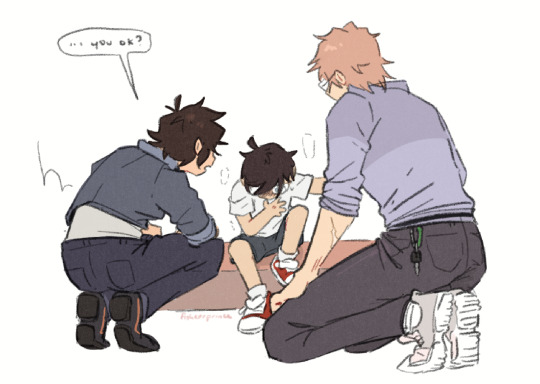
#sorry it’s how my brain works (sometimes can only see things in terms of tv scene-)#tumblr exclusive video fancy…#dcmk#my art#(quietly coughing and spluttering) OK alright I can feel the creative brain explosion slowing down. geez#coughs.#nyways. weird that there hasn’t really been a main case where poison is involved in a certain way#If I watch my own scribbled boards for too long im gonna get too embarrassed to post. Send post#Subarus hair is still infuriating by the way like take that off your normal hair is easier. The beanie is easier#you like Have to have the side corners on this haircut or it doesn’t look right#anyways. shiho ptsd moments I think she kind of gets irritated that shinichi doesn’t react the same so when he does she gets like#weirded out and vindicated and a little protective. Like woah wait. Love that you understand me rn don’t like that you feel bad I am going…#to…………. ssssssssssit here about it…………………………….. uhhhh. do you want. a rubix cube to get your mind off it#I don’t want to talk about my feelings I just want you to get it. you don’t wanna talk about your feelings either which is……………. Hmmmmmm#I like her. love of my life miyano shiho#masumi sera#conan edogawa#ai haibara#akai shuichi#let conan swear. HE SWEARS A LOT BUT LET HIM SWEAR IN ENGLISH I KNOW HE KNOWS THEM#man needs his emotional support akai family they like him#rigorous trials to being approved by the akai matriarch but everyone else likes him already and have already picked him up multiple times#and shuichi would let him swear
471 notes
·
View notes
Text

You see, @localcanadiancryptid22, I’m a motherfucker who LOVES drama, so I fw anything that can create that.

I’m normal. Btw. In case you were wondering.
#not putting this on the post the tags were from cause I don’t wanna bother op lol#but yeah I do whatever I think is interesting. or funny.#and Stanbill is REALL fucking funny to me#like. imagine you’re bill. you’re OBSESSED with ford. and you finally get into his mind#you’re going to have the last laugh#you’re finally getting everything you’ve ever wanted#and then BAM. ITS HIS TWIN BROTHER.#his twin brother you have ALWAYS thought of as inferior. a cheap copy.#but he BEATS YOU. HE is the one to best you. not your precious Sixer. but his conman brother.#and you’re LIVID.#stupid Stanley! he’s just a cheap copy of his brother! it was a total fluke! man he was hot in the lighting of those flames. wait WHAT#<- do you get what I’m saying#that’s fucking hilarious#also the obsessive hatred dripping off of bill when he talks about Stan on thisisnotawebsitedotcom.com is#VERY. INTERESTING.#I just love messy shit. and I love when they make eachother worse. top notch.#anyway. teehee.#stanbill#billford#fiddleauthor#fordsquared#fiddlestan#fiddlebill#fiddlebillford#<- is that a tag#it should be#orals worst most fucked up polycule#or love triangle#or both#shitpost
873 notes
·
View notes
Text
I still think the decision by the game devs to not have Fenris turn Anders or even Merrill over to the Templars was a fascinating character choice. I know it’s for gameplay reasons, but the fact that they don’t even have him try (if the player has a low approval score with him, for instance) says so much about him as a person. It’s implied in a dialogue he has with Sebastian that he doesn’t do it out of… respect, maybe? for Hawke, but even with low approval, he doesn’t try (is he using Hawke as deflection as to why he doesn’t???).
It implies that Fenris values others’ autonomy over his own fear and disgust of even blood mages. Like,, the same Fenris that isolates himself and constantly advises Hawke to not get involved in other people’s problems. And iirc the fact that you gain approval in a few instances when you help other elves. Deep down he does care about others and always has (we’re talking about the guy who essentially sacrificed himself to save his mother and sister), but nobody has ever been there for him so he projects that hurt onto the world around him. And that’s why it’s so satisfying that he goes on to be the Blue Wraith, helping others like nobody ever helped him.
#this is a key part of his character to me#please talk to me about this. even if it’s ‘just’ putting your thoughts in tags. I wanna read them#fenris#da2#fenris da2#dragon age#my post
567 notes
·
View notes
Text
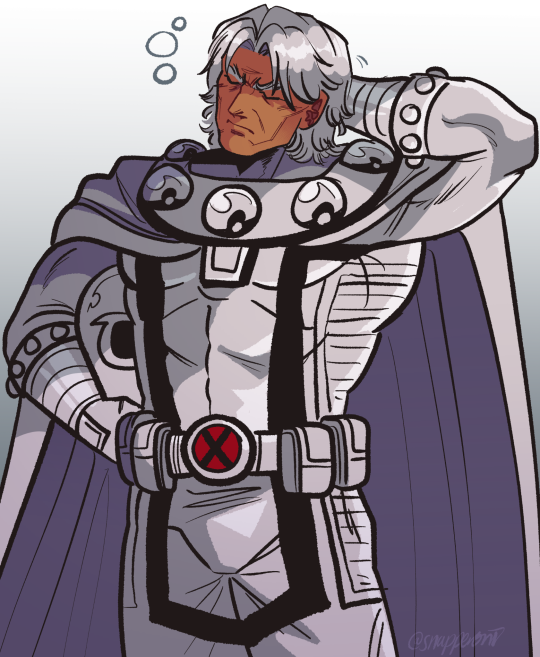
im with fam but i always thinka him so doodle time
#xmen#xmen comics#erik lehnsherr#magneto#snap sketches#'hey guys i wont have time for doodle posting for a bit' me when i lie fCKJWRBKH#i actually dont likr this too much but im posting just so i can ramble bout erik fjKJCNWKDCHJ#I dont think its bad just not really post worthy#i draw this mfer sleepy so much thatswhy i dont like this#i usually just hoard doodles like these since they dont feel super share worthy to me but i repeat#i just want an excuse to talk about erik and i wanted a homegrown visual#anyway. i have wine in me im being bold <- its not that bold#sometimes i look at how the black lines on krakoa eriks design put focus on his. //coughs// front#and i get lightheaded like mfer if you do not want me to stare do not put a literal box in front of my EYES#ok thats literally it. i wanna try to doodle something ill be Happy happy to share but lbr i cant muster anything anymore tonight#so for now bye bye hope everyone had a good day today !!#im gonna go draw erik indecent maybe ill feel better then
391 notes
·
View notes
Text
AGSKFJDBDH LMAO Katsuki physically being leashed to his IV drip, held by his mother, so he’s forced to stand in the doorway and not launch himself across the room
#more in tags>>#bnha leaks#bnha spoilers#bnha manga spoilers#bnha manga leaks#mha leaks#mha spoilers#bnha#MHA#boku no hero academia#my hero academia#bakudeku#bkdk#Boku no hero academia spoilers#if I have faith in one things it’s their hand holding imagery and they will get something related to that soon#but yeah Mitsuki holding the IV drip is so fucking funny especially with the previous panel of them holding him back#she said this is my compromise take it or leave it#she knows damn well that boy would launch himself at izuku if left unchecked#I’m trying to refrain from posting about it until the official chapter’s out and because it’s 3 am but damn it I have thoughts#I wanna talk about how Katsuki canonically flew to Izuku’s side last chapter not to even do a final blow but just to be there
497 notes
·
View notes
Text
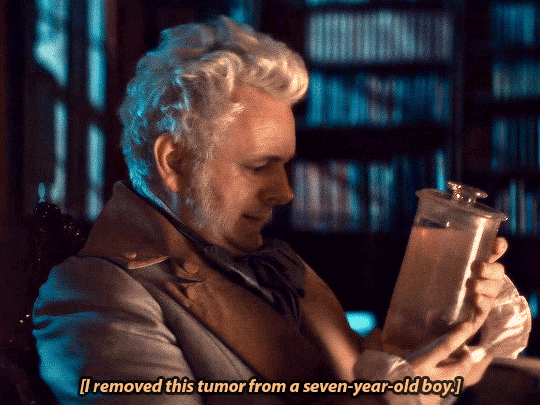
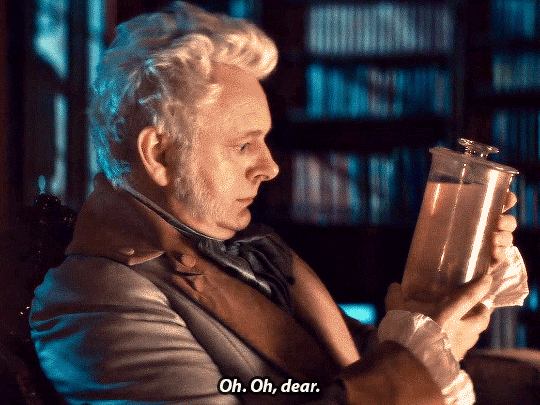
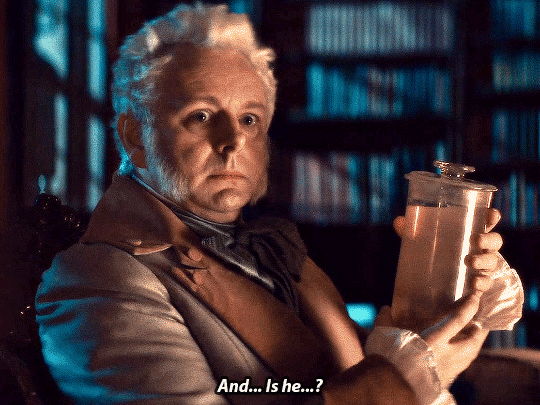
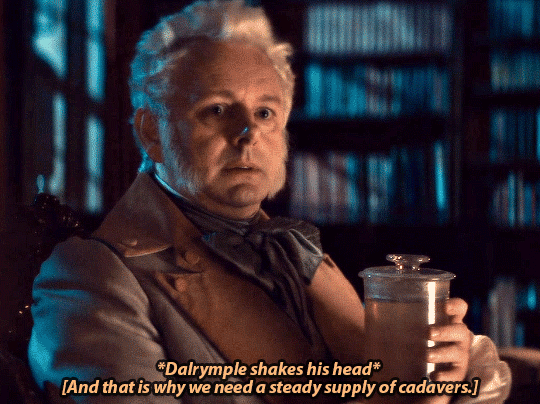
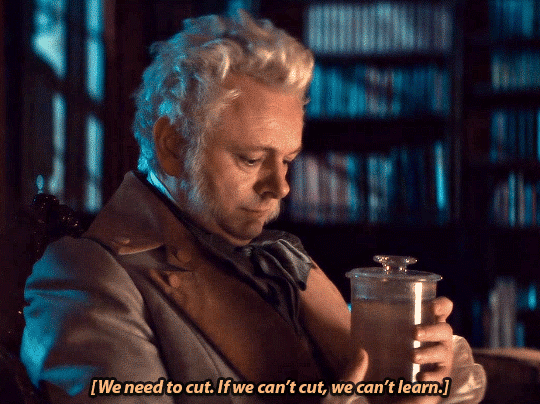
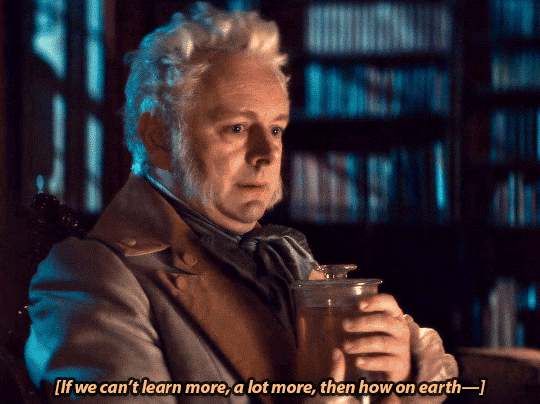

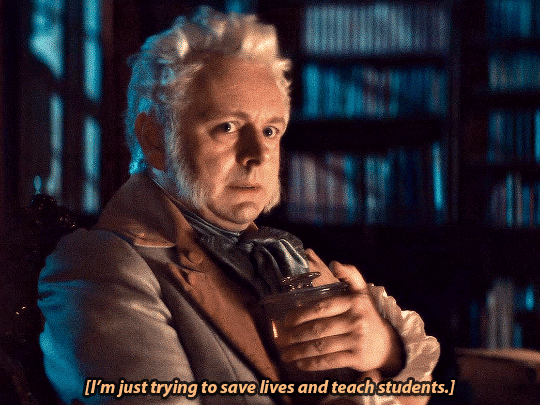
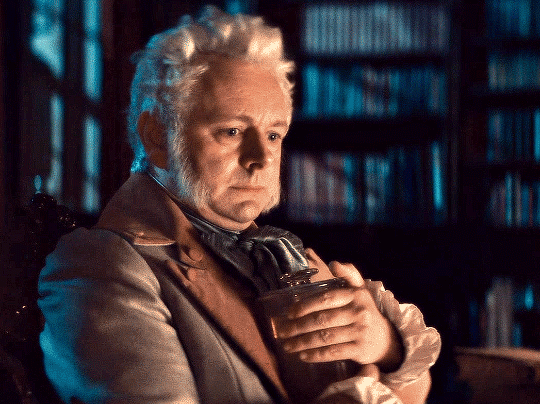
Aziraphale mourning the jar holding the tumor from a seven-year-old boy.
#thank you michael sheen very cool#i just wanna have a calm sensible talk about your acting choices here 🔪#good omens#good omens gifs#ida.stuff#good omens s2#good omens 2x03#good omens spoilers#gos2spoilers#good omens 2#long post#goodomensgifs
2K notes
·
View notes
Text
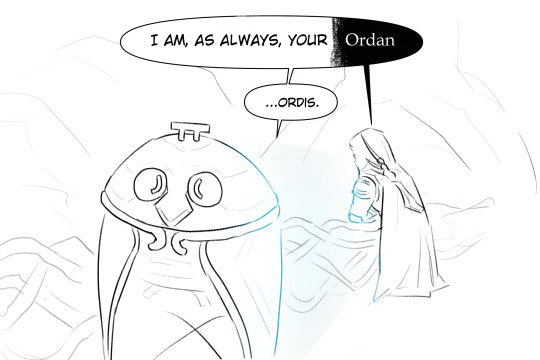
if ordan karris wanna complete that sentence does that mean he also likes us?
#i mean. the ordan part can control what sentence he wanna hijack right?#hmm#after seeing so much dialogue from his quote page i really wanna see the ordan part inside ordis actually has major impact in canon#and not just to roast parvos. i absolutely love that part but i hope i can see more than that#also makes me wonder how much details in his quote implies what would happen later in the game#like. idk how long ordis has been calling us the operator but i guess it's definitely before the second dream#and i also guess people would understand it as the operator of orbiter or something and not about#...that#yeah that kind of detail#does that count as a spoiler?#what am i talking about this whole post IS a spoiler#but i don't actually wanna tag my each and every post as spoiler tho#cephalon fragment has existed for years so i guess im just gonna... keep. not tagging that. yeah#warframe#warframe ordis#warframe ordan karris#my art
470 notes
·
View notes
Text

I’ve absolutely adored this hc for quite a couple of months and I think it’s time I post something regarding it + add some kross sprinkled in <3 I made some doodles occasionally but I thought they weren’t good enough to post yk. Now I’m happy with myself <3
(Honestly I’m not sure how to label Killer, though those are the labels I see may fit him- anyway trans Cross makes me happy I love my boy sm)
Cross belongs to jakei Killer belongs to rahafwabas
#undertale au#utmv#killer sans#cross sans#kross ship#criller#I wanted to draw this such a long time ago but for some reason I can't draw anything unless I have a specific thing pictured in my mind-#So here it is finally done and I can sigh in relief!! (I'll post more stuff later today <3)#Was honestly so happy by this hc being acknowledged but all the drama that happened is just upsetting#But I don't wanna talk about the negative stuff that's not what this post is about <3 Love you all!!#mmelart
349 notes
·
View notes
Text
Okay, I've officially watched Arcane. Might be at risk of becoming a LoL fan. But I gotta say, people really misundersood the sex scene. It is one of the most thematically conclusive scenes in season 2. Cait finally lets go of her Jinx obsession, allowing herself peace while also helping the woman she loves. She wanted Vi to be someone who would agree with her, who would reinforce her ideals and actions. But in this moment, she shows that she accepts her. Her past, her flaws, and whatever the future holds. She chooses her over revenge. And in Cait accepting Vi, we have the opposite. Vi begged her not to change at the beginning of the season and yet she did. She forced herself to focus on revenge until it swallowed her whole, and Ambessa molded that into a fine weapon. But Vi changed her for the better. To someone who could find peace and make the changes they both wanted. And when Vi kisses her, it's a show that she accepts her too. She accepts the changes. And she's embracing the one thing she wanted this whole time- a family. Instead of chasing something she'll never get back, she accepts that things have changed and embraces her future. In a way, she's accepting her own life.
Also, the scene literally occurs in a jail cell. Yknow, the setting where they met to begin with. It represents new beginnings for them both. A moment in which they embrace each other and all the flaws and struggles that come with. They have plagued each others' minds all season and now they literally start over, allowing each other to focus on the battles ahead of them.
#i could talk for a while about how important this scene is#i saw someone say it was unnecessary which. how dare you.#after the “youre hot cupcake” in the brothel i think this was inevitable#would i have preferred a heartfelt discussion yeah. will i complain about vi gettin some no#and besides that song FUCKS#pun intended#arcane#caitvi#caitvi sex scene#so much for not watching the show immediately. i had a day where i could work at home and snatched it#just me my laptop a gazillion things in front of me and maniacal giggling at the most harrowing scenes cause humor is my coping mechanism#i blame shaggy and spidey for that#also i will say. my previous arcane post- not that wrong#not super right but not wrong. just missing a LOT of important context lol#arcane league of lesbians#caitlyn kiramman#caitlyn arcane#vi arcane#vi and caitlyn#vi x caitlyn#sze i wanna say thank you for getting me to wanna watch the show. i am joyed. but also if i become a league fan it will be your fault
201 notes
·
View notes